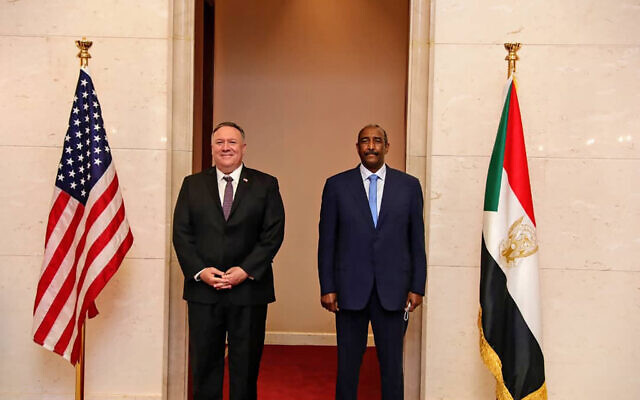
Sudanese officials reportedly requested $3 billion to $4 billion in aid in exchange for normalizing relations with Israel during negotiations with US officials.
Sudan’s Lt. Gen. Abdel Fattah al-Burhan, its de-facto leader, held talks this week in the United Arab Emirates with US and Emirati officials.
During the talks, Sudan turned down an offer of $800 million in aid and investments as part of an exchange for a deal with Israel, The New York Times reported on Sunday. Most of the sum would have been paid by the US and UAE, with Israel paying around $10 million.
Sudan has also asked to be removed from the US list of state sponsors of terror, which US officials said they are willing to do. The designation prevents Sudan from receiving foreign funding, contributing to its ongoing financial crisis.
Sudan is now seen by US officials as the most likely candidate to follow the lead of the UAE and Bahrain, which normalized ties with Jerusalem earlier this month, but the financial aid package has emerged as a stumbling block in the talks, the report said.
The Walla news site previously reported that Sudan was asking for oil and wheat shipments worth $1.2 billion to cope with recent devastating floods, a $2 billion grant to deal with Sudan’s economic crisis and a commitment of economic support from the US and the UAE over the next three years.
Israeli officials have long expressed a wish for better relations with Khartoum, citing its importance in the region as well as its geographic location.
Israeli officials said that Saudi Arabia took part in negotiations between Israel, the UAE and Bahrain, but that the Saudis were unlikely to recognize Israel in the near future. Saudi Arabia’s Crown Prince Mohammed bin Salman was involved in the talks, and the kingdom secretly pushed other Middle East countries to support the agreements, The New York Times report said. (Read More)